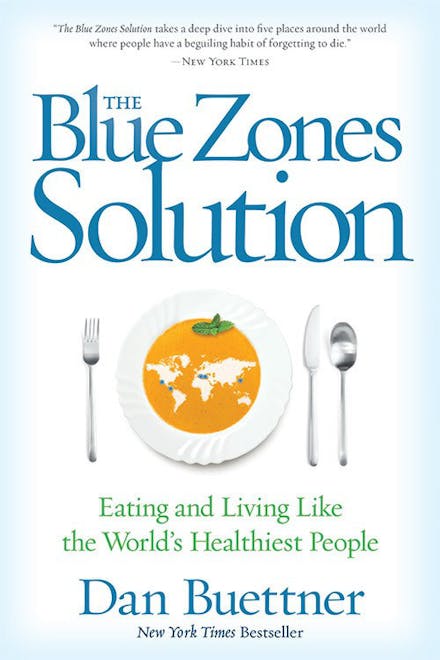An Introduction to Longevity
In the context of human lifespans, “longevity” refers to how long someone lives and is generally understood to apply to people on the longer end of the life expectancy spectrum.
Longevity is something we can exert varying degrees of control over, although there are always variables that may influence the context of the choices available to us. By following certain practices, however, we can increase the likelihood we will stay healthy for a longer time, thereby increasing our chances for longevity. Three of the most important factors in staying healthy are nutrition, exercise, and adequate sleep.
Additional factors that may play a role in an individual’s longevity include but are not limited to:
- Quality of relationships
- Enjoyment of one’s work
- Peace of mind or inner peace
- Having a higher purpose
- A sense of belonging/community
How does diet affect longevity?
“Let food be thy medicine, let medicine be thy food” is a quote frequently attributed to the Greek physician Hippocrates (c. 460–c. 370 BCE), the so-called father of Western medicine.
A healthy diet can mean different things for different people, and it’s always a good idea to discuss your own particulars around diet, exercise, and sleep with a healthcare professional. But as a guiding principle for healthy eating, limiting one’s intake of highly processed foods and eating enough vegetables and fruits have been shown to contribute to a person’s overall health. This, in turn, increases the likelihood of longevity.
Eating for longevity sounds simple, but given the amount of exposure to advertising for not-so-healthy foods and a multitude of other variables, forming sustainable habits around a healthy diet can be a major challenge.
What is the difference between lifespan and healthspan?
The synergistic blend of certain key factors in a person’s life contributes to what researchers refer to as “healthspan.” Whereas “lifespan” is defined as the amount of time between birth and death, one’s “healthspan” is the amount of time a person is healthy and not substantially encumbered by disease or chronic ailments.
While there are no guarantees about what tomorrow holds, a longer healthspan often leads to greater longevity.
How does exercise affect longevity?
People exercise for many reasons, often just because they enjoy the workout or activity that gets them moving. But when it comes to exercise and longevity, research shows that consistently getting between 7,000 and 8,000 steps (around 30 to 45 minutes of movement) a day can increase an individual’s chance for a longer life.
Walking, running, swimming, and cycling—along with participation in individual or team sports—are just some of the options for enjoyable exercise.
How does sleep affect longevity?
It may seem as though we aren’t doing much as we sleep, but the body is restoring and recharging itself through the passive power of rest. Adequate sleep is as necessary to bodily health—including brain health—as good nutrition and regular physical activity are.
Because sleep is so essential to our quality of life, lack of sleep (or in some cases, too much sleep) can be detrimental to our overall health, which in turn can result in disorders that affect how long we live.
Do kindness and optimism help us live longer?
One of the more interesting developments in longevity research in recent years has been studies indicating that kindness can play a significant role in adding years to one’s life. In her 2020 book Growing Young: How Friendship, Optimism, and Kindness Can Help You Live to 100, author and science journalist Marta Zaraska writes about how having strong support networks and meaningful relationships with friends and family members has been shown to contribute to reaching an advanced age.
Additionally, she also found that practices such as empathy and self-reflection as it relates to the search for purpose can affect both the quality and length of one’s life.
Regarding optimism and longevity, a long-term study of men over 62 and women over 70 found that the most optimistic participants lived 10 to 15 percent longer than the least optimistic.
What else determines longevity?
In addition to factors already discussed, a combination of one’s genetic expression, lifestyle choices, and socioeconomic circumstances also play a role in lifespan and healthspan.
The emerging field of epigenetics indicates that gene expression is influenced by things like nutrition, physical activity, stress levels, and one’s environment. While we may not have immediate control over our environment, we can engage in practices such as meditation and gratitude that help us maintain a more positive outlook even during challenging times, regardless of external circumstances.
Lifestyle choices such as not smoking and not consuming excessive amounts of alcohol are very important when calculating life expectancy.
Socioeconomic factors play a dominant role in where people live; thus, one’s social circles, income, and monetary resources are closely related to environmental factors in longevity. Environmental conditions ranging from good air quality to clean drinking water to enough accessible green space can empower people to choose activities that support the pursuit of longer, healthier lives.
By taking ownership of factors generally under our control, it may be possible, or even probable, that we can increase our chances for longevity while keeping serious health issues at bay.
You Might Also Like Our Content on These Topics: Aging, Memory, Stress Management, Friendship, Optimism











